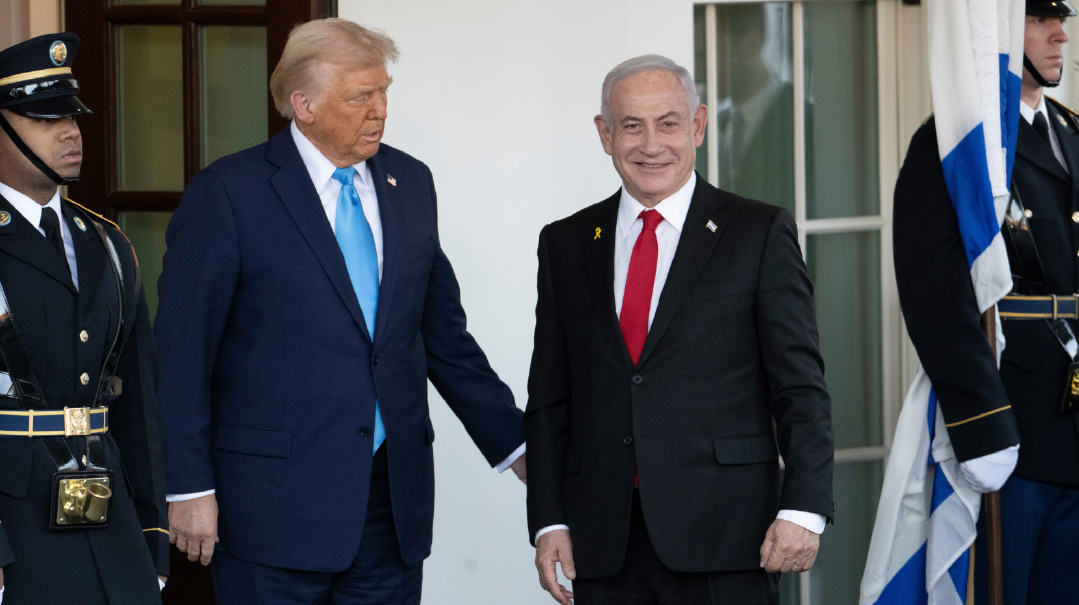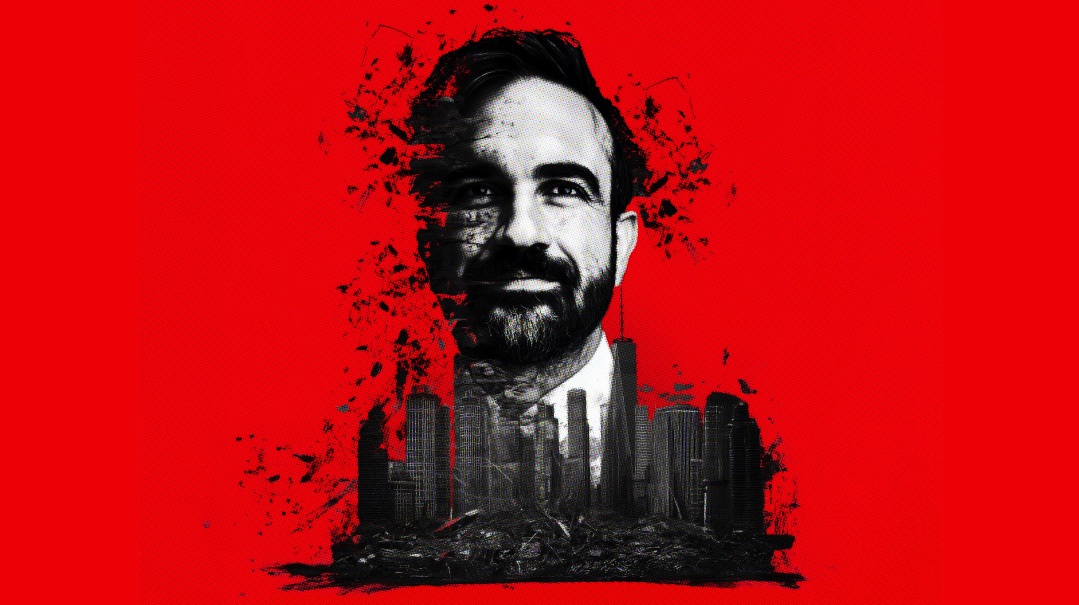A Chill Takes Hold in Chile

In Chile's bizarre election, Nazi's son wins Jewish vote

A dark cloud of uncertainty was cast over Chile’s Jewish community after presidential elections put an ultra-left, pro-Palestinian alliance in power for the next four years.
Gabriel Boric, who at his 35 will be Chile’s youngest president ever, reached 55 percent in the second round at press time, defeating ultra-right candidate José Antonio Kast.
“I will be the president of all Chileans,” said Boric in his first speech — something many Jews there would very much like to believe, given that in the past he has spoken strongly against Israel and the local Jewish community.
But aside from Boric himself, the big question mark for local Jewry remains his allies; the main supporter of his bloc is the powerful Chilean Communist Party, whose rising star is Daniel Jadue, a Chilean of Palestinian descent who is also an outspoken anti-Semite and leading defender of the Palestinian cause in Chile.
The most determinative presidential election that Chileans can recall have forced the flourishing Jewish community to confront what exile is all about: They were forced to choose between an extreme right-wing candidate whose father had been a bona fide Nazi, and an extreme left-wing candidate who drew his main support from the Communist Party. The contest clearly showed a pattern that has repeated itself all around the globe: The extreme right tends to support the Israeli cause, while the left sides with the Palestinians.
José Antonio Kast, leader of the far-right Republican Party, had drawn comparisons to America’s Donald Trump and Brazil’s Jair Bolsonaro. Many Jews saw him as a guarantor for restoring law and order, which has been lost over the last two years, as the country was submerged in social chaos. Violent unrest in October 2019 claimed 25 lives and destroyed many homes and businesses, leading to a constitutional referendum that defanged police (as reported in “Chilling Developments in Santiago,” Issue #786).
For Chilean Jews, there was only one “slight” detail of Kast’s background that they had to overlook: Like many other members of the Nazi Party after World War II, his father emigrated from Germany and found shelter in South America. Many documents have proven the elder Kast’s affiliation with the Nazis, but the candidate nevertheless denied the accusations. The allegations put Kast’s Jewish supporters in an awkward position.
“It’s difficult to prove all the stories that have been around but, anyhow, I don’t think it’s fair for a son to take responsibility for his father’s actions,” says Gerardo Gorodischer, president of the Jewish community in Chile. “Mr. Kast has been to Israel at least twice, and honored the Holocaust victims in Yad Vashem. Also, while he was a congressman, he constantly showed himself to be sympathetic to our needs as a community.”
Others are not so forgiving. Alexis Camhi, member of the board of directors of Aish Chile, says, “More problematic than his father’s past is the fact that he himself has not emphatically condemned the crimes that were executed by Augusto Pinochet’s dictatorship.”
As a matter of fact, Kast openly defended the dictator, who ruled from 1974 to 1990, and said proudly, “If Pinochet were alive, he would vote for me!”
Although many other Jewish supporters would have expected a stronger defense of human rights, they still saw Kast as the “best of two non-ideal options.”
That is because, on the other side, they had Kast’s opponent, Gabriel Boric. His coalition, Apruebo Dignidad, represents a mélange of progressive and extreme left-wing elements that emerged from the social convulsions two years ago in a strong position. Although he tried to present himself as closer to the Jewish community in the campaign’s waning days, he has in the past spoken explicitly against Israel and has openly supported the BDS movement — which has led to him into direct confrontations with the Jewish community.
One action that caught the attention of many Jews around the world was when the local community sent him a present for Rosh Hashanah, and he responded, “Thank you, but you should tell Israel to return the territories to the Palestinians.”
“Even though the Chilean community has a very strong connection to the land of Israel, Mr. Boric has shown difficulty understanding that we are not responsible for Israel’s actions,” explains Aish Chile’s Mr. Camhi.
Mr. Gorodischer says the community has seen some positive changes in the way Boric behaves toward them, but “there is a long way to go yet.”
In any event, the main fear in the Jewish community concerns not Boric himself, but those behind him. He is holding together a broad alliance, and once ensconced in power, he will have to answer everyone’s requests.
His main pillar of support is the powerful Chilean Communist Party, which boasts Daniel Jadue as its star figure. Jadue, mayor of the Santiago suburb of Recoleta, lost in the primary elections with Boric, but retains very strong political influence inside the alliance. He is of Palestinian descent and has engaged in outspoken anti-Semitic discourse.
“Jadue openly says that Jews control the mass media, and makes other typical anti-Semitic pronouncements,” says Mr. Camhi.
Gerardo Gorodischer adds that “Jadue is the main driver of the Palestinian cause in the country.”
That Palestinians dominate the political discussion in Chile is itself an issue that contains a mixture of surprise and irony, and is not so well known.
Chile is home to more than 500,000 Palestinians, and as such is the largest community in the Palestinian “diaspora.” But the truth is that 95 percent of those emigrants were Christian Arabs escaping Muslim persecution in the 1850s. They are thoroughly integrated into Chilean society nowadays, and have never represented a problem for the small Jewish community… until the last few years.
The left’s advance and the resulting increase in anti-Israel discourse has generated a new “Palestinian identification” among that community. This became clear during Israel’s last confrontation with Hamas, when streets in Santiago were plastered with banners denouncing Israel and supporting the Palestinians.
So 150 years after the Palestinian immigration to Chile, their descendants are taking the “Palestinian cause” as theirs, ignoring the fact that their own grandparents or great-grandparents had to run for their lives to avoid being killed by the Muslims… whom they now defend.
During the social crisis of the last two years, many Jews who saw their stores destroyed and robbed before their eyes decided to leave Chile, mainly for Miami and Eretz Israel.
Does a Boric government portend an increase in this trend?
“I think it might happen, but not specifically because of his position toward Israel,” says Mr. Gorodischer. “I would rather say that economic uncertainty and the search for a more predictable future for their kids could be a stronger reason. Which, in that sense, is not an attitude exclusive to the Jews.”
Mr. Camhi also expressed the view that an increase in Jewish people leaving the country would only result from a lack of clarity in economic policies. Both of them made clear that the Jewish community will work to strengthen ties with Boric and his governing coalition.
(Originally featured in Mishpacha, Issue 891)
Oops! We could not locate your form.






